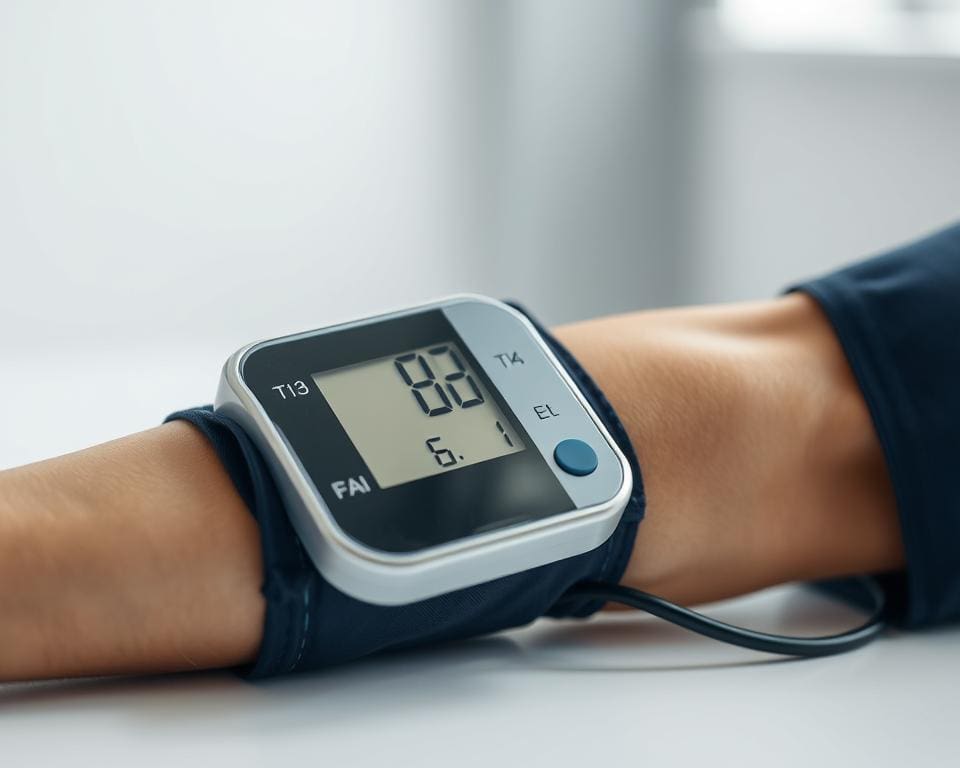In recent years, there has been a growing awareness of the crucial role that lifestyle changes play in managing hypertension and promoting overall health. As many individuals turn towards holistic approaches, the importance of understanding what lifestyle changes lower blood pressure cannot be overstated. By adopting simple yet effective alterations to daily routines, anyone can work towards a healthier lifestyle that significantly impacts their blood pressure levels. This article aims to inspire readers to explore these essential adjustments, highlighting their connection to improved well-being and the reduction of hypertension risks.
Understanding Blood Pressure and Hypertension
Blood pressure plays a crucial role in understanding overall health. It refers to the force exerted by circulating blood on the walls of blood vessels and is typically measured in millimetres of mercury (mmHg). Grasping the concept of blood pressure is vital, as it forms the basis for assessing the risk of hypertension and related health issues.
What is Blood Pressure?
To comprehend blood pressure, one must recognise that it comprises two numbers: systolic and diastolic. Systolic blood pressure indicates the pressure in arteries when the heart beats, while diastolic pressure reveals the pressure when the heart is at rest between beats. Understanding these readings is essential for identifying whether blood pressure falls within the normal or high range.
The Significance of Maintaining Healthy Blood Pressure Levels
Hypertension, defined as consistently elevated blood pressure, poses significant health risks such as heart disease, stroke, and kidney problems. Achieving healthy blood pressure levels is crucial for overall wellbeing. Regular monitoring of blood pressure and understanding its classifications—normal, elevated, and high—can empower individuals to take proactive steps for a healthier lifestyle.

What Lifestyle Changes Lower Blood Pressure
Adopting certain lifestyle modifications plays a crucial role in managing blood pressure. Incorporating dietary changes alongside proper hydration can significantly contribute to a healthy lifestyle. This section discusses key adjustments that can help lower blood pressure effectively.
Dietary Adjustments for Lowering Blood Pressure
Making thoughtful dietary changes is fundamental in the fight against hypertension. A balanced diet laden with fruits, vegetables, whole grains, lean proteins, and low-fat dairy can effectively help lower blood pressure. The DASH diet, which stands for Dietary Approaches to Stop Hypertension, serves as a robust framework for individuals aiming to improve their blood pressure levels. Implementing this approach can lead to notable improvements in cardiovascular health.
- Emphasise intake of potassium-rich foods, such as bananas and spinach.
- Reduce consumption of sodium, aiming for less than 2,300 mg per day.
- Incorporate healthy fats from sources like avocados and nuts.
Hydration: The Importance of Water Intake
Hydration is vital for overall health and has a direct impact on blood pressure management. Adequate water intake helps maintain optimal blood viscosity, ensuring proper circulation. Specific recommendations suggest aiming for approximately 2 litres of water daily, though individual needs may vary. To enhance hydration, consider the following tips:
- Keep a refillable water bottle within reach.
- Add fruits like lemon or berries for flavour.
- Monitor your fluid intake, particularly during physical activity or warm weather.
The Role of Physical Activity in Managing Blood Pressure
Engaging in physical activity plays a pivotal role in effectively managing blood pressure. Developing a well-structured exercise routine can lead to improved cardiovascular health and overall well-being. The American Heart Association suggests that adults aim for at least 150 minutes of moderate-intensity aerobic activity each week, which includes various types of exercises tailored to individual preferences and capabilities.
Creating an Effective Exercise Routine
To create an impactful exercise routine, it is essential to incorporate a variety of activities that engage different muscle groups and promote cardiovascular endurance. Individuals can start with achievable goals, gradually increasing the duration and intensity of their workouts. Setting aside time each day for these activities can significantly contribute to healthier blood pressure levels.
- Begin with 30 minutes of moderate cardio exercises, such as brisk walking or cycling, five days a week.
- Introduce strength training exercises at least twice a week, focusing on all major muscle groups.
- Include flexibility workouts like yoga or stretching to enhance overall fitness and reduce stress.
Types of Exercises Beneficial for Hypertension
Numerous types of exercises can effectively aid in managing blood pressure. Aerobic activities, such as swimming and dancing, provide excellent cardiovascular benefits. Resistance training also proves beneficial, aiding in muscle strengthening and metabolic function. Consistent engagement in these types of exercises fosters weight management, which directly influences blood pressure levels.
Incorporating these diverse types of exercises into daily life not only supports physical health but can also lead to enhanced mental well-being. Regular physical activity alleviates stress and anxiety, both of which may adversely affect blood pressure. Thus, embracing an active lifestyle serves as a vital component in the journey towards managing blood pressure effectively.
The Importance of Stress Management
Effective stress management is vital for maintaining overall health and wellbeing. The connection between stress and blood pressure cannot be overlooked, as chronic stress can escalate blood pressure levels significantly. Engaging in activities that help to reduce stress is essential for preserving cardiovascular health. Understanding the impact of stress provides a clearer insight into why implementing stress management techniques is crucial.
Techniques to Reduce Stress
Adopting specific techniques aimed at reducing stress can empower individuals to regain control over their lives. Some effective methods include:
- Mindfulness: Practising mindfulness encourages focused attention on the present, minimising distractions that lead to stress.
- Yoga: This ancient practice combines physical postures with breathing exercises, promoting relaxation and reducing anxiety.
- Meditation: Regular meditation sessions can help calm the mind, allowing for better management of stress levels.
- Breathing exercises: Deep breathing can activate the body’s relaxation response, making it easier to handle stress.
The Impact of Stress on Blood Pressure
The physiological effects of chronic stress can manifest in various ways, with heightened blood pressure often being a significant outcome. Stress hormones, such as cortisol, can lead to temporary spikes in blood pressure readings. This pattern can create long-term implications for cardiovascular health if not addressed. Creating a balance between work, leisure, and self-care enhances mental wellbeing, contributing positively to blood pressure management.
Embracing a Healthy Lifestyle
To achieve optimal health and well-being, embracing a healthy lifestyle should encompass various dimensions that go beyond mere dietary choices. A balanced diet forms the cornerstone of this lifestyle, promoting enhanced energy levels, mood improvement, and serving as a safeguard against diseases. Sleep and rest also play vital roles, with research demonstrating a direct link between sleeping patterns and blood pressure regulation.
Benefits of a Balanced Diet
Adopting a balanced diet provides myriad benefits for individuals striving to lower their blood pressure. Key advantages include:
- Improved energy levels, aiding in daily activities.
- Enhanced mood, contributing to emotional stability.
- Reduced risk of chronic diseases, including hypertension.
- Better nutrient intake, which supports overall health.
Importance of Sleep and Rest
Quality sleep and sufficient rest are essential for maintaining a healthy lifestyle. Numerous studies have revealed that sleep deprivation can lead to elevated blood pressure levels. Prioritising sleep hygiene can dramatically impact health. Consider the following tips:
- Establish a consistent sleep schedule by going to bed and waking up at the same time every day.
- Create a relaxing bedtime routine to help signal your body that it’s time to wind down.
- Limit exposure to screens and bright lights before bedtime to promote better sleep.
- Keep the bedroom environment conducive to rest, ensuring a comfortable temperature and minimal noise.
Natural Remedies and Supplements to Consider
For those looking to manage hypertension, exploring natural remedies and dietary supplements can be a beneficial addition to traditional health strategies. Ingredients like garlic have gained attention for their potential to lower blood pressure, with studies suggesting that garlic extract may relax blood vessels and boost circulation. Similarly, fish oil, rich in omega-3 fatty acids, has been linked to reduced blood pressure levels and improved heart health, making it a noteworthy option for individuals aiming to support their cardiovascular system.
Another corner of nutritional science highlights the importance of potassium-rich foods. Incorporating bananas, sweet potatoes, and spinach into your diet may help counteract sodium’s effects and assist in lowering blood pressure. Moreover, herbal remedies such as hibiscus tea have shown promise in clinical studies, with some research indicating it may provide a natural way to combat hypertension. Ashwagandha is another herbal supplement that’s frequently mentioned for its potential stress-reducing properties, which could furthermore contribute to improved blood pressure regulation.
While these natural remedies and supplements present exciting possibilities, it is crucial to consult with healthcare professionals before starting any new regimen. This ensures that strategies employed are not only safe but also suitable for individual health needs. Continuing research into these alternative health strategies will help clarify their roles, empowering individuals to make informed decisions about their health journey and take proactive steps towards managing their blood pressure effectively.









